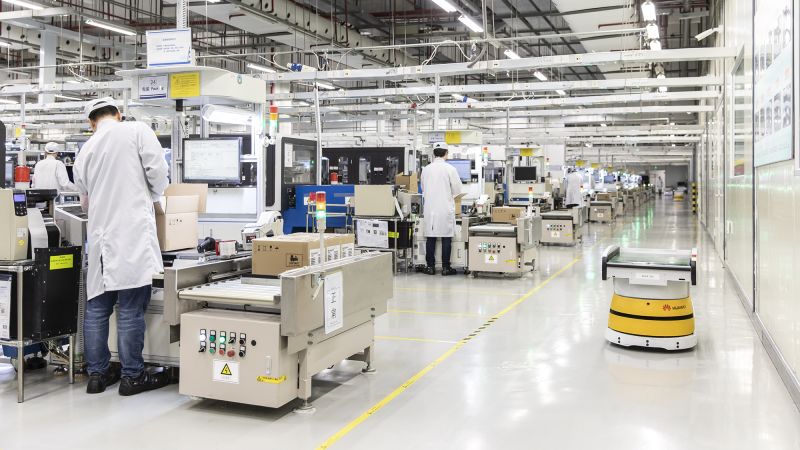Washington/Singapore
Reuters
—
The United States has revoked licenses that allowed companies including Intel and Qualcomm to ship chips used for laptops and handsets to sanctioned Chinese telecoms equipment maker Huawei Technologies, three people familiar with the matter said.
A fourth person said some of the companies were notified on Tuesday that their licenses were revoked effective immediately. The U.S. Commerce Department earlier in the day confirmed it had revoked some licenses but stopped short of naming the companies.
A spokesperson for Intel (INTC) declined to comment. Qualcomm (QCOM) did not respond to a request for comment, and Huawei did not immediately respond.
The move comes after the release last month of Huawei’s first AI-enabled laptop, the MateBook X Pro powered by Intel’s new Core Ultra 9 processor.
The laptop launch drew fire from Republican lawmakers, who said it suggested to them that the Commerce Department had given the green light to Intel to sell the chip to Huawei.
“We have revoked certain licenses for exports to Huawei,” the Commerce Department said in a statement, declining to specify which ones it had withdrawn.
The Commerce Department’s move, first reported by Reuters, comes after concerted pressure by Republican China hawks in Congress who have been urging the Biden administration to take tougher action to thwart Huawei.
“This action will bolster US national security, protect American ingenuity, and diminish Communist China’s ability to advance its technology,” Republican Congresswoman Elise Stefanik said in a statement.
The move could hurt Huawei, which still relies on Intel chips to power its laptops, and could hurt US suppliers that do business with the company.
Intel has also been facing weak demand for its traditional data center and PC chips. Last month, it lost $11 billion in stock market value after forecasting second-quarter revenue and profit below market estimates.
Huawei was placed on a US trade restriction list in 2019 amid fears it could spy on Americans, part of a broader effort to handicap China’s ability to bolster its military. Being added to the list means the company’s suppliers have to seek a special, difficult-to-obtain license before shipping.
Even so, suppliers to Huawei have received licenses worth billions of dollars to sell goods and technology to the company, including one particularly controversial authorization issued by the Trump administration, which has allowed Intel to ship central processors to Huawei for use in its laptops since 2020.
Qualcomm has sold older 4G chips to handset makers since receiving a license from US officials in 2020. In a regulatory filing earlier this month, Qualcomm said it did not expect to receive more chip revenue from Huawei beyond this year.
However, Qualcomm still licenses its portfolio of 5G technologies to Huawei, which last year began using a 5G chip designed by its HiSilicon unit that most analysts believe is manufactured in violation of US sanctions. Qualcomm said in the filing this month that its patent deal with Huawei expires early in Qualcomm’s fiscal 2025 and that it has started negotiations to renew the deal.
Critics argue such licenses have contributed to the company’s resurgence. Huawei shocked the industry last August with a new phone powered by a sophisticated chip manufactured by Chinese chipmaker SMIC, despite US export restrictions on both companies.
The phone helped Huawei smartphone sales spike 64% year on year in the first six weeks of 2024, according to research firm Counterpoint. Its smart car component business has also contributed to Huawei’s resurgence, with the company notching its fastest revenue growth in four years in 2023.

